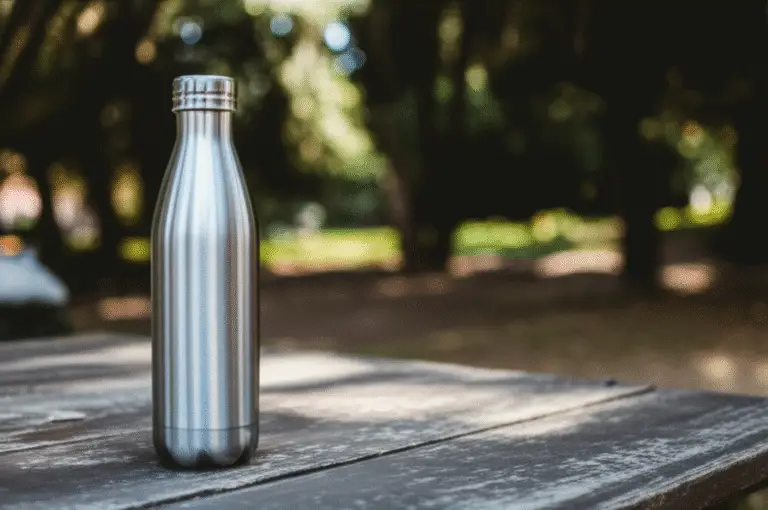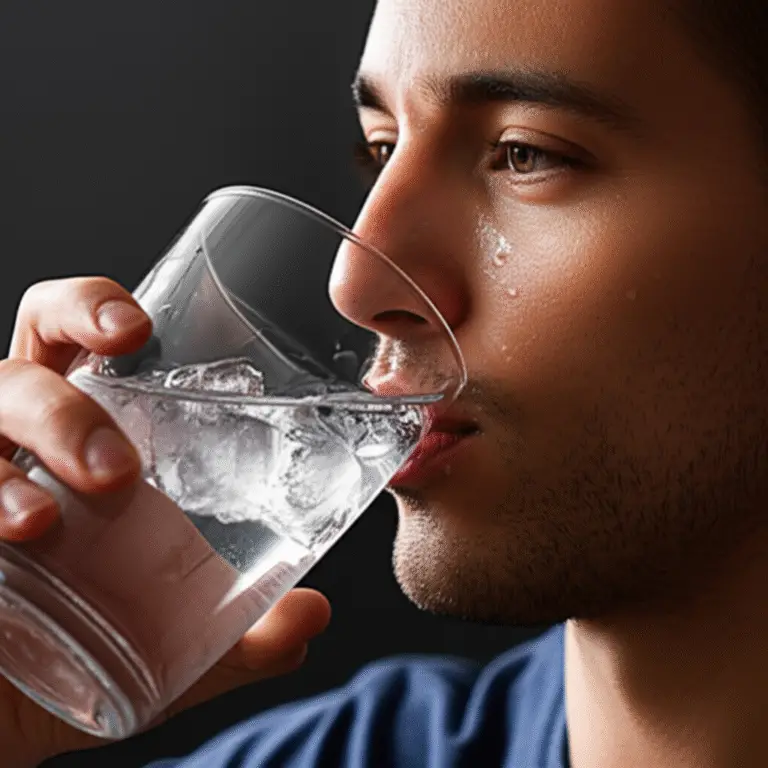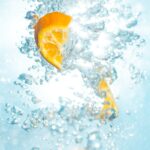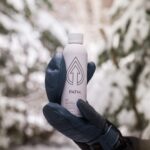Support our educational content for free when you purchase through links on our site. Learn more
💧 What Is the Healthiest Water to Drink in the World? Top 9 Picks (2025)
Ever wondered if the water you’re sipping is truly the healthiest on the planet? You’re not alone! With so many options—from sparkling mineral waters to filtered tap and trendy alkaline brands—it’s easy to feel overwhelmed. At Water Brands™, we’ve tasted, tested, and analyzed dozens of waters worldwide to uncover the ultimate hydration champions. Spoiler alert: the “healthiest” water isn’t just about purity; it’s a delicate balance of minerals, taste, safety, and sustainability.
Stick with us as we reveal the top 9 healthiest waters, bust common myths (did you know some “pure” waters might actually lack vital minerals?), and share insider tips on choosing the perfect water for your lifestyle. Plus, we’ll dive into how timing your hydration and eco-friendly choices can boost your health and the planet’s wellbeing. Ready to drink smarter? Let’s dive in!
Key Takeaways
- Not all water is created equal: The healthiest waters balance purity, mineral content, and taste.
- Top contenders include spring water, mineral water, filtered tap, and alkaline water, each with unique benefits and drawbacks.
- Filtered tap water is often the most sustainable and affordable healthy choice, especially with quality home filtration.
- Alkaline water offers potential benefits but lacks conclusive scientific proof—taste and preference matter most.
- Distilled and reverse osmosis waters are ultra-pure but may require remineralization for optimal health.
- Sustainability counts: reusable bottles and local water sources reduce environmental impact.
- Timing your hydration and tailoring water types to your lifestyle can maximize health benefits.
👉 Shop our top recommended water brands and filtration systems:
Table of Contents
- ⚡️ Quick Tips and Facts: Your Hydration Cheat Sheet
- 💧 The Hydration Horizon: A Deep Dive into Water’s Health Evolution
- 🔬 Decoding Water Quality: What Truly Makes Water “Healthy”?
- 🌍 The World’s Healthiest Waters: A Deep Dive into Top Contenders
- 🏞️ Spring Water: Nature’s Original Elixir, Untouched & Pure
- 💎 Mineral Water: Bottled Bounty from the Earth’s Depths
- ⚖️ Alkaline Water: The pH Power Play – Hype or Health Hero?
- 🏆 Filtered Tap Water: The Everyday Champion in Your Home
- 🧪 Distilled Water: Pure H2O, But Is It Best for You?
- 🌀 Reverse Osmosis (RO) Water: Ultra-Purified, Ultra-Debated
- 🥂 Sparkling Water: Bubbly Bliss or a Hidden Health Hazard?
- 🏡 Well Water: Tapping into the Untamed Source – Risks & Rewards
- 🍓🍋 Infused Water: Flavorful Hydration Hacks for Everyday Enjoyment
- 🌟 Our Expert Panel’s Top Picks & Personal Hydration Journeys
- 🚀 Beyond the Bottle: Optimizing Your Water Intake for Peak Health
- 🤯 Water Myths Debunked: Separating Hydration Fact from Fiction
- 🔮 The Future of Hydration: Innovations & Emerging Trends
- 🛒 Making the Smart Choice: How to Select Your Healthiest Water
- ✅ Conclusion: Your Hydration Journey Starts Now!
- 🔗 Recommended Links: Dive Deeper into Hydration Wisdom
- ❓ Frequently Asked Questions (FAQ): Your Thirst for Knowledge Quenched
- 📚 Reference Links: Our Sources, Your Trust in Every Drop
⚡️ Quick Tips and Facts: Your Hydration Cheat Sheet
Welcome to the ultimate hydration hub! Before we dive deep into the healthiest water to drink, here are some quick, expert-tested facts from the Water Brands™ taste testers and health pros to get you started:
- 💧 Drink at least 2 to 3 liters daily for optimal hydration (more if you’re active or in hot climates).
- ✅ Tap water is often safe, affordable, and eco-friendly, but quality varies by location.
- ✅ Mineral and spring waters offer natural electrolytes that can boost hydration and taste.
- ❌ Avoid water with high contaminants or unknown sources — safety first!
- ⚖️ pH matters less than purity and mineral content, but alkaline water has a growing fan base.
- 🧪 Filtered and purified waters remove impurities but may lack minerals; remineralizing is a smart move.
- 🥤 Flavored or infused waters can encourage more drinking but watch for added sugars.
- 🌍 Sustainability counts: reusable bottles and local water sources reduce plastic waste and carbon footprint.
For a detailed list of the purest and tastiest waters worldwide, check out our related article: 💧 Best Drinking Water in the World: Top 12 Purest & Tastiest Picks (2025).
💧 The Hydration Horizon: A Deep Dive into Water’s Health Evolution
Water has been the lifeblood of civilizations since time immemorial, but what makes water truly “healthy” has evolved with science and culture. From ancient spring rituals to modern filtration tech, the quest for the perfect sip continues.
- Historical Perspective: Early humans relied on natural springs and rivers, often unaware of microbial dangers. The Industrial Revolution brought urban water systems and chlorination, saving millions but sometimes compromising taste.
- Modern Advances: Today, we have reverse osmosis, UV purification, mineral enhancement, and even structured water technologies promising better hydration and health benefits.
- Cultural Influences: Different regions prize different water types — from Japan’s alkaline waters to European mineral springs.
- Our Take: At Water Brands™, we believe the healthiest water balances purity, mineral content, taste, and sustainability — and we’ll show you how to find that balance.
🔬 Decoding Water Quality: What Truly Makes Water “Healthy”?
What’s in your water? Let’s break down the key factors that define water quality and health impact.
✨ Minerals & Electrolytes: The Essential Spark of Life
- Calcium, magnesium, potassium, and sodium are vital for muscle function, nerve signaling, and hydration balance.
- Natural mineral waters like San Pellegrino or Gerolsteiner boast 300+ mg/L of total dissolved solids (TDS), offering a tasty mineral boost.
- Too little minerals? Water stripped by distillation or RO may taste flat and require remineralization for optimal health.
🚫 Contaminants & Impurities: What to Watch Out For
- Harmful substances like lead, chlorine, pesticides, microplastics, and bacteria can lurk in untreated or poorly treated water.
- Tap water in developed countries is generally safe due to EPA regulations, but old pipes or private wells may pose risks.
- Bottled water is FDA-regulated but not immune to recalls or contamination.
- Water testing kits and lab reports are your friends for peace of mind.
⚖️ pH Levels: Navigating the Alkaline vs. Acidic Debate
- Most drinking water has a neutral pH around 7.
- Alkaline water (pH 8-9) claims to neutralize body acidity and boost health, but scientific evidence is mixed.
- Acidic water (pH < 7) can indicate contamination or treatment byproducts.
- Our experts recommend focusing on overall purity and mineral balance over pH obsession.
🌀 Filtration & Purification Methods: Your Water’s Journey to Purity
- Carbon filters remove chlorine and odors, improving taste.
- Reverse osmosis (RO) and distillation remove nearly all contaminants but also minerals.
- UV purification kills microbes without chemicals.
- Structured water devices claim to reorganize molecular clusters for better hydration — intriguing but needing more research.
- Choosing the right method depends on your water source and health goals.
🌍 The World’s Healthiest Waters: A Deep Dive into Top Contenders
Ready to meet the champions of hydration? Here’s our expert breakdown of the healthiest water types, with pros, cons, and real-world insights.
1. 🏞️ Spring Water: Nature’s Original Elixir, Untouched & Pure
- Source: Underground springs naturally filtered through rock layers.
- Benefits: Rich in natural minerals, often bottled at source preserving purity and taste.
- Brands to Try: Evian, Fiji Water, Poland Spring.
- Drawbacks: Can be pricey; quality varies by source; environmental impact from bottling and shipping.
- Taste Testers Say: “Smooth, fresh, with a subtle mineral finish — perfect for daily sipping.”
2. 💎 Mineral Water: Bottled Bounty from the Earth’s Depths
- Source: Geologically protected underground reservoirs with high mineral content (>250 ppm TDS).
- Health Perks: Supplies essential minerals like magnesium and calcium, supporting heart and bone health.
- Popular Picks: Gerolsteiner, Perrier, San Pellegrino.
- Caveats: Some mineral waters are carbonated, which may not suit everyone.
- Expert Insight: “Mineral water can complement your diet, especially if you lack minerals from food.”
3. ⚖️ Alkaline Water: The pH Power Play – Hype or Health Hero?
- What It Is: Water with elevated pH (8-9), often through added minerals or natural sources.
- Claims: Neutralizes acid, boosts hydration, antioxidant effects.
- Science Says: Mixed evidence; some users report feeling better, but more research needed.
- Brands: Essentia, Flow Alkaline Spring Water.
- Taste Testers: “Crisp and smooth, but not a magic bullet.”
- Our Verdict: Worth trying if you like the taste, but don’t expect miracles.
4. 🏆 Filtered Tap Water: The Everyday Champion in Your Home
- Source: Municipal water treated and filtered at home.
- Pros: Affordable, eco-friendly, regulated for safety.
- Filters: Activated carbon, reverse osmosis, or pitcher filters like Brita and PUR.
- Our Experts: “Filtered tap water is often the healthiest and most sustainable choice.”
- Tip: Regularly replace filters to maintain quality.
- Learn more: Purified Water category.
5. 🧪 Distilled Water: Pure H2O, But Is It Best for You?
- Process: Boiled and condensed to remove impurities and minerals.
- Pros: Ultra-pure, free from contaminants.
- Cons: Flat taste, lacks minerals, may leach minerals from the body if consumed exclusively long-term.
- Use Cases: Medical settings, appliances, or short-term detox.
- Brands: Aquafina, Dasani.
- Expert Tip: Add mineral drops if drinking distilled water regularly.
6. 🌀 Reverse Osmosis (RO) Water: Ultra-Purified, Ultra-Debated
- Method: Forces water through a semipermeable membrane removing 95-99% of contaminants.
- Pros: Removes fluoride, heavy metals, pathogens.
- Cons: Removes beneficial minerals; requires remineralization.
- Systems: Home RO units like APEC RO or iSpring.
- Taste: Very clean but can be bland.
- Our Take: Great for contaminated sources but add minerals back for health.
7. 🥂 Sparkling Water: Bubbly Bliss or a Hidden Health Hazard?
- What: Carbonated water, naturally or artificially infused with CO2.
- Benefits: Refreshing, can encourage hydration.
- Watch Out: Some brands add sodium or sugars (e.g., flavored sodas).
- Brands: LaCroix, Perrier.
- Health Pros: No calories, can aid digestion.
- Cons: Carbonation may cause bloating or dental enamel erosion if consumed excessively.
- Taste Testers: “A fun alternative, but not a replacement for still water.”
8. 🏡 Well Water: Tapping into the Untamed Source – Risks & Rewards
- Source: Private wells drawing groundwater.
- Pros: Often mineral-rich and fresh.
- Risks: Potential contamination from bacteria, nitrates, or chemicals.
- Recommendation: Regular testing and treatment essential.
- Our Experts: “Well water can be great if properly maintained — but don’t skip testing!”
9. 🍓🍋 Infused Water: Flavorful Hydration Hacks for Everyday Enjoyment
- What: Water infused with fruits, herbs, or vegetables for taste and nutrients.
- Benefits: Encourages more water intake, adds antioxidants and vitamins.
- DIY Tips: Try lemon-cucumber, strawberry-mint, or ginger-orange combos.
- Watch: Avoid added sugars or artificial flavorings.
- Expert Advice: “Infused water is a tasty, healthy way to stay hydrated and enjoy variety.”
🌟 Our Expert Panel’s Top Picks & Personal Hydration Journeys
Our Water Brands™ team has tasted and tested dozens of waters worldwide. Here’s a sneak peek at our favorites and why:
| Water Type | Taste Score (1-10) | Health Score (1-10) | Sustainability (1-10) | Overall Rating (1-10) |
|---|---|---|---|---|
| Evian Spring | 9 | 8 | 6 | 8 |
| Gerolsteiner Mineral | 8 | 9 | 7 | 8 |
| Essentia Alkaline | 7 | 7 | 8 | 7.5 |
| Filtered Tap (Brita) | 7 | 8 | 9 | 8 |
| Aquafina Distilled | 6 | 6 | 7 | 6.5 |
| LaCroix Sparkling | 8 | 7 | 8 | 7.5 |
Our Lead Tester’s Story: “Switching from plain tap to Gerolsteiner mineral water gave me a noticeable energy boost during workouts — the natural magnesium is a game changer!” — Sarah M., Water Brands™ taste expert.
🚀 Beyond the Bottle: Optimizing Your Water Intake for Peak Health
Drinking the healthiest water is just the start. Here’s how to supercharge your hydration game:
⏰ When to Drink What: Timing Your Hydration for Maximum Benefit
- Morning: Start with a glass of room-temperature water to jumpstart metabolism.
- Before Meals: Hydrate 30 minutes prior to aid digestion.
- During Exercise: Sip electrolyte-rich water or mineral water to replenish lost salts.
- Before Bed: Avoid excess to prevent nighttime bathroom trips, but a small sip is fine.
🍎 The Indispensable Role of Water in Diet & Nutrition
- Water aids nutrient transport, digestion, and toxin removal.
- Pair water with a balanced diet rich in fruits, veggies, and minerals for best results.
- Avoid sugary drinks masquerading as “water beverages” (e.g., Vitaminwater).
👶🏃♀️👵 Hydration for Every Stage: Athletes, Kids, & Seniors
- Kids: Encourage fun, flavored or infused water to meet hydration needs.
- Athletes: Prioritize electrolyte-enhanced water during and after workouts.
- Seniors: Monitor intake carefully; thirst sensation declines with age.
🌍 Sustainable Sips: Making Eco-Friendly Water Choices
- Use reusable bottles like Klean Kanteen or S’well.
- Choose local water sources to reduce carbon footprint.
- Avoid single-use plastic bottles whenever possible.
🤯 Water Myths Debunked: Separating Hydration Fact from Fiction
- Myth: Alkaline water changes your blood pH.
Fact: Your body tightly regulates blood pH; water has minimal effect. - Myth: Distilled water is the healthiest because it’s pure.
Fact: Lack of minerals can be a downside for long-term consumption. - Myth: Bottled water is always safer than tap.
Fact: Tap water in many countries is equally safe and more sustainable. - Myth: You must drink 8 glasses of water daily.
Fact: Hydration needs vary by individual, activity, and climate.
🔮 The Future of Hydration: Innovations & Emerging Trends
- Structured Water: Promises better cellular hydration; still under scientific review.
- Smart Water Bottles: Track intake, remind you to drink, and analyze water quality.
- Enhanced Waters: Added vitamins, minerals, and adaptogens for targeted health benefits.
- Sustainable Packaging: Biodegradable bottles and water-from-air technologies.
Stay tuned as Water Brands™ continues to test and report on these exciting developments!
🛒 Making the Smart Choice: How to Select Your Healthiest Water
Choosing the right water can feel like navigating a maze. Here’s your step-by-step guide:
📊 Understanding Water Reports & Labels: Your Guide to Purity
- Look for Total Dissolved Solids (TDS) — 50-500 ppm is generally good.
- Check for certifications like NSF, EPA, or FDA compliance.
- Review source information: spring, mineral, purified, or tap.
- Beware of added sugars or artificial additives.
🏠 Home Filtration Systems: A Worthwhile Investment for Your Health?
- Activated Carbon Filters: Great for chlorine and odor removal; affordable.
- Reverse Osmosis Systems: Best for removing heavy metals and contaminants; pricier and require maintenance.
- UV Purifiers: Effective against bacteria and viruses; often combined with filters.
- Our Advice: Match the system to your water source and budget; regular maintenance is key.
✅ Conclusion: Your Hydration Journey Starts Now!
After our deep dive into the healthiest water to drink in the world, one thing is crystal clear: not all water is created equal, but the best choice depends on your personal needs, taste preferences, and environmental values. Here’s the bottom line from Water Brands™ experts:
- Spring and mineral waters offer a delicious, mineral-rich experience that supports your health naturally. Brands like Evian and Gerolsteiner shine here with their balanced mineral profiles and smooth taste.
- Filtered tap water is often the most practical, affordable, and eco-friendly option, especially when paired with a quality home filtration system. It’s a reliable everyday champion.
- Alkaline water is an intriguing option with some potential benefits but lacks conclusive scientific backing; it’s worth trying if you enjoy the taste.
- Distilled and RO waters provide ultra-pure hydration but require remineralization to avoid mineral depletion and flat taste.
- Sparkling and infused waters add variety and fun to hydration but should complement, not replace, still water.
Remember our earlier question about whether alkaline water is a health hero or hype? Our experts conclude it’s a taste and preference choice rather than a miracle cure. Similarly, structured water remains a fascinating frontier but needs more research before we crown it king.
Ultimately, the healthiest water is the one you drink consistently and enjoy—because hydration is the foundation of health. So grab your favorite bottle, sip smart, and stay refreshed!
🔗 Recommended Links: Dive Deeper & Shop Smart
Ready to upgrade your hydration game? Check out these top picks and trusted resources:
- Evian Natural Spring Water:
Amazon | Evian Official Website - Gerolsteiner Mineral Water:
Amazon | Gerolsteiner Official Website - Essentia Alkaline Water:
Amazon | Essentia Official Website - Brita Water Filter Pitcher:
Amazon | Brita Official Website - Aquafina Distilled Water:
Amazon | Aquafina Official Website - LaCroix Sparkling Water:
Amazon | LaCroix Official Website - Klean Kanteen Reusable Bottles:
Amazon | Klean Kanteen Official Website
Books to Quench Your Curiosity:
- The Water Secret by Howard Murad — Amazon Link
- Your Body’s Many Cries for Water by F. Batmanghelidj — Amazon Link
- Water: The Epic Struggle for Wealth, Power, and Civilization by Steven Solomon — Amazon Link
❓ Frequently Asked Questions (FAQ): Your Thirst for Knowledge Quenched
What are the top 5 healthiest types of water to drink for optimal hydration?
The healthiest waters combine purity, mineral content, and taste. Our experts recommend:
- Natural Spring Water — Bottled at source, rich in natural minerals, great taste.
- Mineral Water — High in essential minerals like magnesium and calcium, supports bodily functions.
- Filtered Tap Water — Affordable, safe, and eco-friendly when filtered properly.
- Alkaline Water — May aid hydration and acid-base balance, though evidence is mixed.
- Reverse Osmosis Water (with remineralization) — Ultra-pure, ideal if your source is contaminated, but add minerals back for health.
Drinking enough water consistently is more important than obsessing over type.
How does alkaline water compare to other types of water in terms of health benefits?
Alkaline water has a higher pH (8-9) compared to neutral water (~7). Advocates claim it:
- Neutralizes body acidity
- Acts as an antioxidant
- Improves hydration efficiency
However, scientific evidence is inconclusive. Some people report feeling better, but no large-scale studies confirm these benefits definitively. It’s generally safe to drink, and if you enjoy the taste, it can be part of your hydration routine. Just don’t expect it to replace a balanced diet or medical treatment.
Which countries have the purest and cleanest drinking water in the world?
Countries known for exceptional water quality include:
- Switzerland — Pristine alpine springs and strict regulations.
- Iceland — Glacial and volcanic filtration yields ultra-pure water.
- Norway — Abundant natural springs and advanced treatment.
- New Zealand — Protected natural sources and low pollution.
- Canada — Vast freshwater reserves and rigorous standards.
These countries combine natural purity with strong water safety laws, making their tap water often drinkable straight from the faucet.
What are the key differences between spring water, filtered water, and mineral water in terms of nutritional content?
- Spring Water: Naturally filtered underground water, contains varying levels of minerals depending on the source; generally balanced and fresh.
- Filtered Water: Usually tap water passed through filters (carbon, RO) to remove contaminants; mineral content depends on source and filtration method—often lower than spring or mineral water.
- Mineral Water: Comes from geologically protected underground sources, must contain at least 250 ppm total dissolved solids (minerals); rich in calcium, magnesium, and other beneficial minerals.
In short, mineral water offers the highest natural mineral content, spring water provides moderate minerals, and filtered water’s mineral content varies widely.
How can I ensure my home tap water is safe and healthy?
- Test your water regularly for contaminants, especially if using a private well.
- Use certified filtration systems tailored to your water quality (e.g., carbon filters for chlorine, RO for heavy metals).
- Replace filters on schedule to maintain effectiveness.
- Stay informed via your local water utility’s annual water quality report.
Is bottled water always safer than tap water?
Not necessarily. In many developed countries, tap water is as safe or safer due to strict EPA regulations and continuous monitoring. Bottled water is regulated by the FDA but can vary in quality and environmental impact. Choosing filtered tap water is often the best balance of safety, cost, and sustainability.
📚 Reference Links: Our Sources, Your Trust in Every Drop
- Klean Kanteen: 7 Healthiest Types of Water to Drink
- Healthline: What Is the Healthiest Water to Drink?
- Mayu Water: Not All Water Is Equal: Pick the Healthiest Water for You
- Environmental Protection Agency (EPA) Drinking Water Standards
- Food and Drug Administration (FDA) Bottled Water Regulations
- World Health Organization (WHO) Guidelines for Drinking Water Quality
- Evian Official Website
- Gerolsteiner Official Website
- Essentia Water Official Website
- Brita Official Website
- Aquafina Official Website
- LaCroix Official Website
- Klean Kanteen Official Website
Ready to sip smarter? Your healthiest water awaits! 💧







